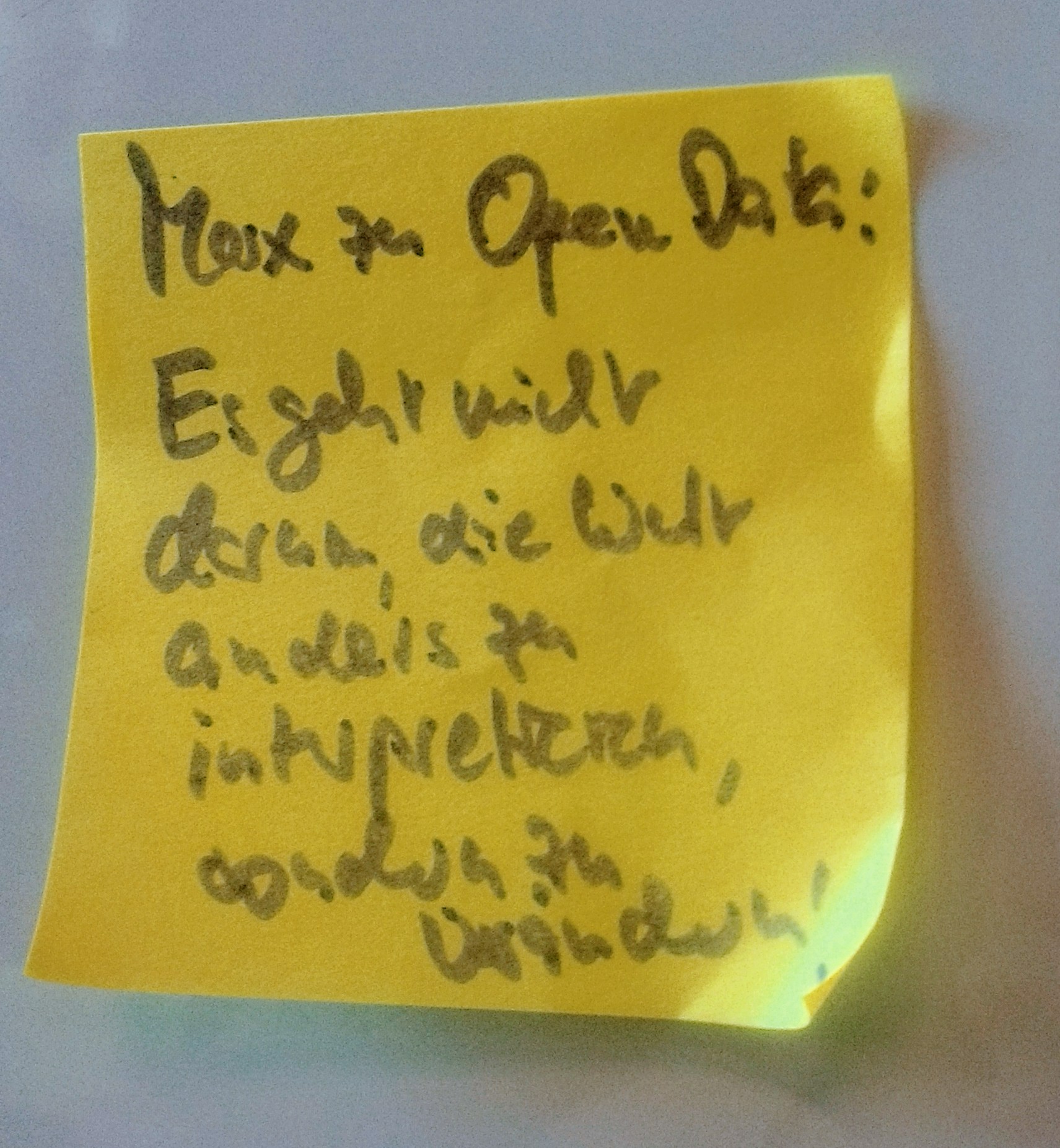CC-BY 4.0, Paulina Bustos, Datenschule, Foto: Helene Hahn
What does it mean to become ‘data literate’? Where do you start and how can you use data within your work and projects? To explore these questions, we would like to introduce some of our community members and data activists from around the world, who ended up working with data at some point in their lives. We were curious about how they actually got started and - looking back now - what they would recommend to data newbies.
Each month we will publish a new interview, this is no. #7. Got feedback? Have questions? Feel free to get in touch: info@datenschule.de
Who: Paulina Bustos, Co-Founder Civica Digital in Mexico, working at Article19-Brazil
Topics: open data and inclusion, gender data
Tweets: @PaulinaBustosA
Hi Paulina, please introduce yourself.
I’m Paulina Bustos and I’m the co-founder of Civica Digital in Mexico, an organisation that builds digital tools to tackle civic problems. We cooperate with NGOs and government institutions. Mostly we have been working with NGOs on women’s rights and gender issues in Mexico.
When was the first time, when you came across data, when did you start to use data in your work?
In Mexico we have been pushing civic tech topics from 2013 until now. When we started building tools, we realized that we didn’t have the data to actually make them work. My journey started with wanting to build apps and websites that could help people to solve everyday problems, like how to register for an ID to be able to vote. We quickly realized, that our services aren’t going to work, because we couldn’t come across the information that we needed. So we started to build tools, that would collect these missing information. Also we advocate for more data to be released by the government - in a better quality and in a machine readable format.
What project are you currently working on?
Currently we are working on a project that measures and evaluates public services with citizens-generated data. This way we want to collect the most relevant information for citizens. It’s a bit like Foursquare for public services that lets you know, how to get an ID to take part in the national elections.
I’ve also worked with NGOs dealing with gender issues. And one thing I found interesting when engaging with these groups is that they might not have the particular tech vocabulary, but a lot of knowledge on the topics and issues related to gender in this case that our team was not aware of. We also learned that gender issues are tracked and measured in different ways. Technology can reveal how data on sexual assaults or domestic violence for example is being collected. Unless you engage with other organisations working on this issue you probably won’t understand all the gratifications of why certain data is being collected and other isn’t. We have been working with an organisation on abortion rights in Mexico. Only in the capital, in Mexico city, it is legal to have an abortion and in other parts of the country it’s not. The NGO told us about all the different ways data on abortion in hospitals is being collected. And we were surprised by all the protocols and mechanisms that they had to generate numbers but at the same time their efforts to protect women having an abortion. Without our partners, we would not have been able to fully understand the issues of the topic.
Why is data important?
In our world many decisions are made based on data, those decisions concern us all. The problem I see is that women need to be represented in the data. Because if we are not, then our needs remain invisible. At the same time, if data has flaws but is used for decision-making, we will keep replicating the same issues. So there has to be more diversity especially in the tech sector to combine expertise and different viewpoints to civic problems. Also diverse tech teams help to see biases within data which is very important to actually be able to improve public services.
In Mexico there is a wide open data community. Issues around data have been brought up by activists who are working to make governments more accountable for their actions. Among all those actors involved in open data discussions we need to make sure not to leave people behind. We need to take underrepresented communities stronger into account.
###Links:
Melde dich bei unserem Newsletter an und erhalte monatlich Informationen über unsere Aktivitäten und Workshops.
 Fachgespräch: Open Data in der Anti-Diskriminierungsarbeit
Fachgespräch: Open Data in der Anti-Diskriminierungsarbeit Wie können offene Daten in der Anti-Diskriminierungsarbeit wirken? Dieser Frage sind wir auf dem Fachgespräch „Open...
 Ehe für alle - Recherche zu den Debatten...
Ehe für alle - Recherche zu den Debatten... Im Rahmen eines ehrenamtlichen Engagements hat Julia Ikkert das Tool OffenesParlament.de genutzt, um zum Thema “Ehe...